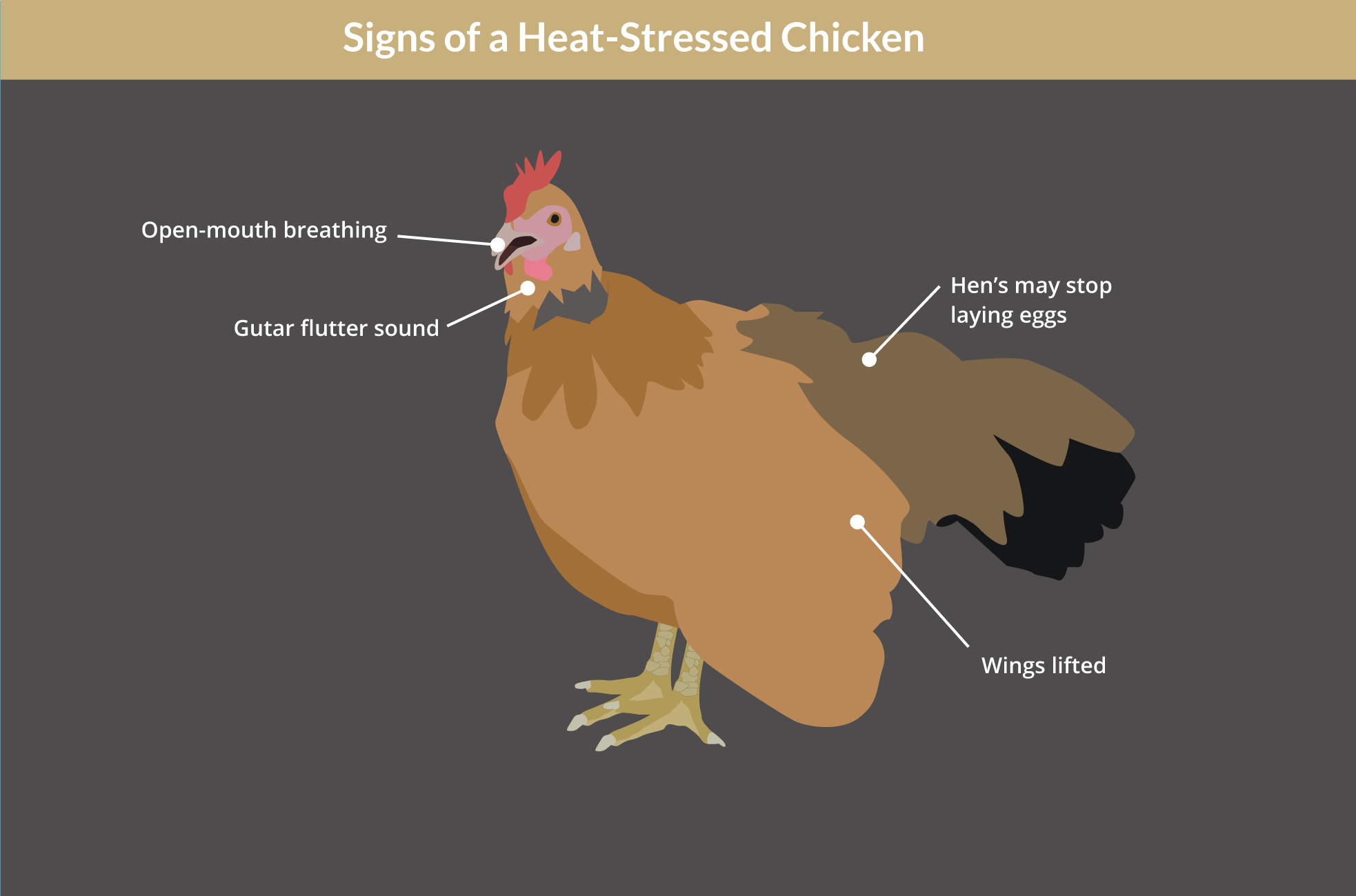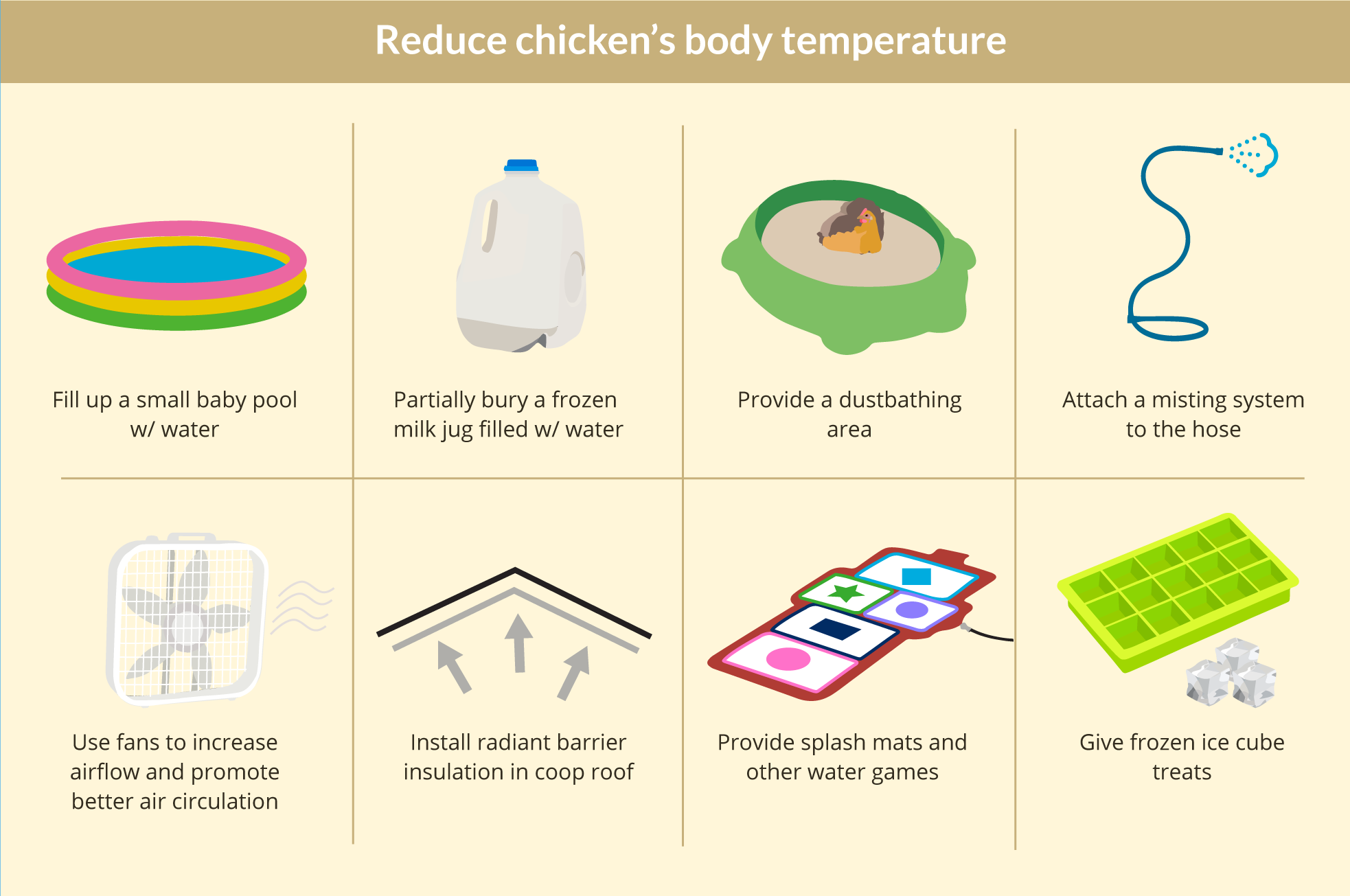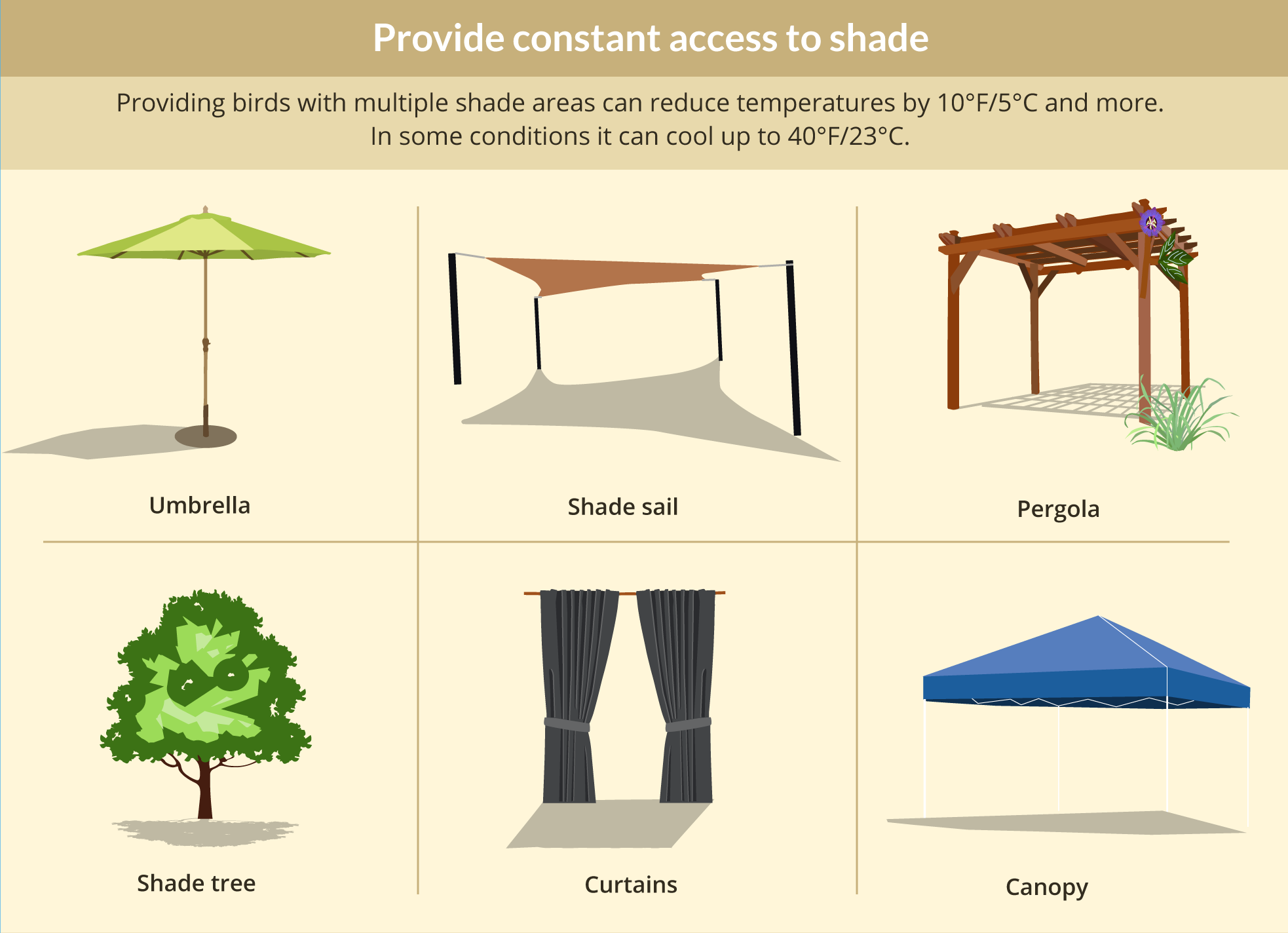Veterinary advice should be sought from your local veterinarian before applying any treatment or vaccine. Not sure who to use? Look up veterinarians who specialize in poultry using our directory listing. Find me a Vet



| Name | Summary | |
|---|---|---|
| Management | Maximize air flow and ventilation and do not overcrowd chickens. | |
| Fans | Provide fans with or without misting ability | |
| Ice cube snacks | Can be a refreshing treat during hot days | |
| Cooling perches | Provide for chickens to keep cool | Strong RA et al., 2015 |
| Boldo (Peumus boldus molina) extract | Added to drinking water source at a dose of 1 g boldo leaf extract/4 L water | Abo Ghanima, Mahmoud M., et al., 2020 |
| Moringa oleifera seed powder | 0.3% added to feed | Abou-Elkhair, Reham et al., 2020 |
| Probiotics | Added to diet | Abd El-Hack, Mohamed E et al., 2020 |
| Lemon verbena powder | Added to feed at a dose of 0.5 to 1.0% | Rafiee, F et al., 2016 |
| Vitamin C | 250 mg/kg added to feed | Rafiee, F et al., 2016 |
| Vitamin E | 200 IU kg-1 added to diet | Gouda, Ahmed et al., 2020 |
| Gingseng extract | Added to feed | Sandner, Georg et al., 2020 |
| Curcumin | Added to feed | Nawab, Aamir et al., 2020 |
| Milk thistle extract | Dietary supplementation at the rate of 15 g/kg | Ahmad, Munib et al., 2019 |
| Resveratrol | Added to diet | He, Shaoping et al., 2019 |
| Betaine | Added to diet , at 1000 mg/kg feed | Attia, Youssef A et al., 2019 |
| Winter | Spring | Summer | Autumn |
© 2024 PoultryDVM All Rights Reserved.